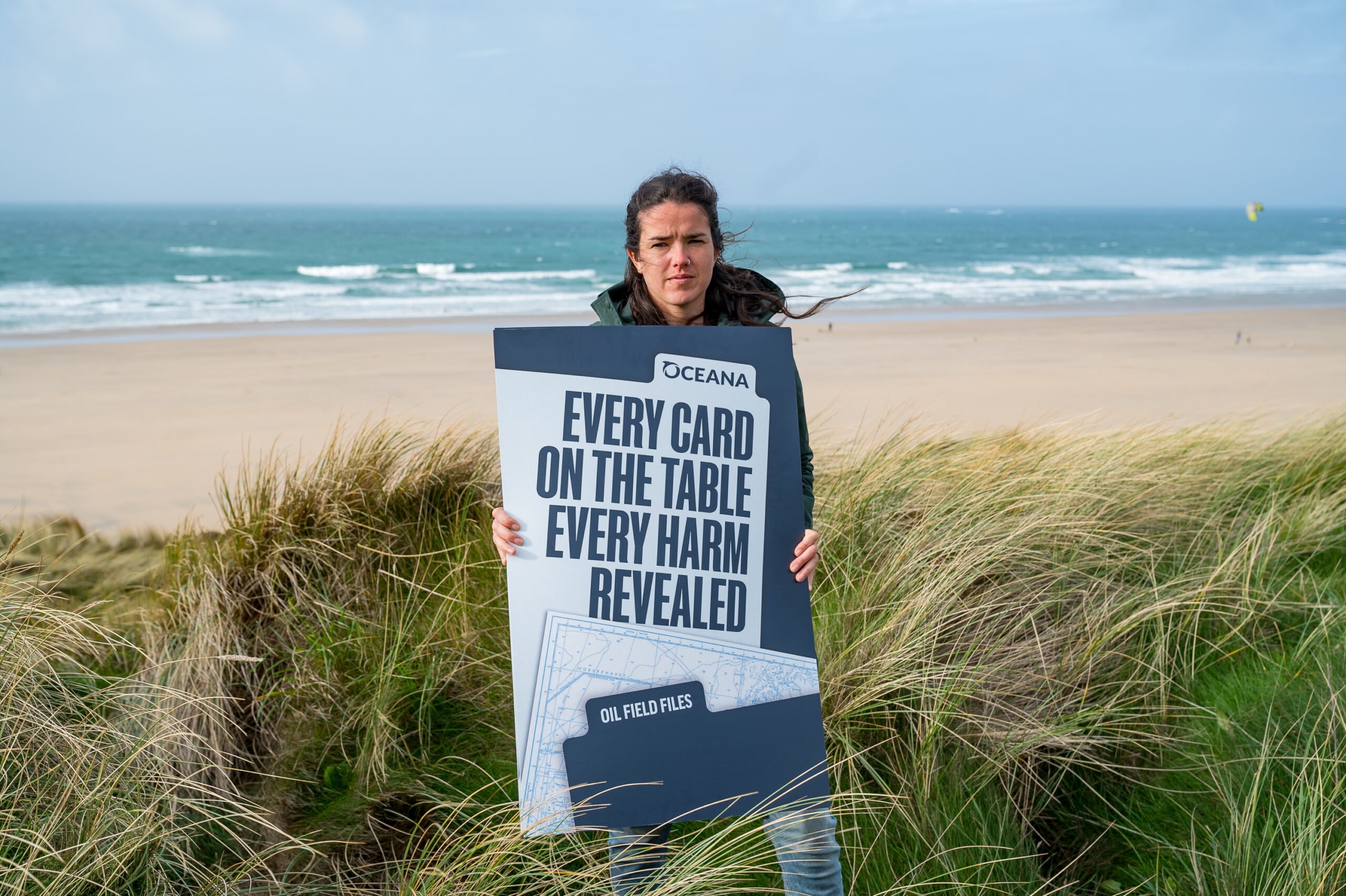04.11.25
Marine havens under threat if govt ‘honours’ new oil fields

Approving full production for 22 remaining North Sea oil and gas fields would deal a hammer blow to the UK’s ocean wildlife, new analysis from Oceana UK has found.
Eight of the potential drilling sites are inside or directly next to marine protected areas, places that should act as havens for ocean life. Production will threaten rare and internationally important wildlife as well as a large number of commercially important fish species. Oceana is urging the public to write to their MP and call for an end to all new oil and gas.
At least 22 North Sea oil and gas fields have had the first stages of licensing approved, but lack permission for full production. While the UK Government made a world-leading pledge to end new oil and gas licences as part of supporting a transition to a clean energy economy, its position on these fields is much less clear.
Allowing full production to go ahead in these fields – five of which are inside marine protected areas (MPAs), and three within five kilometres – would do severe damage to UK seas and marine wildlife, Oceana’s analysis finds. One of the potential drilling sites is inside the Dogger Bank MPA, an important spawning area for fish such cod and mackerel, which are already at serious risk of collapse due to overfishing. In fact, at least 36 commercially important fish species were found to be at risk from these combined developments, should they go ahead.
Other protected areas threatened by these oil and gas fields form key harbour porpoise feeding and breeding areas or shelter internationally important populations of grey seals. The Fulmar MPA, named after a seabird that itself is vulnerable to oil pollution, is home to the threatened and declining ocean quahog clam. These animals can live for over 500 years, improving water quality, providing habitat, and locking in carbon storage.
UK Government is currently running a public consultation on one of the fields, Rosebank, which had its consent overturned when the courts ruled that the emissions that would be caused by burning the field’s oil had not been properly accounted for in impact assessments. Just 14 of the 22 fields analysed would create over 900 million tonnes of emissions, Oceana’s work shows. Full estimates of the total emissions from all the fields were impossible due to lack of data.
It is important to be clear, says Oceana, that most of these fields will not produce any oil or gas for many years, and in fact may never produce any at all, despite causing deep harm to UK seas and wildlife right from the start. Even then, any fossil fuels extracted will be sold on the international market with no expected reduction in bills for householders. Anything produced will be owned by the companies themselves – not the UK Government.
Naomi Tilley, Oil & Gas Campaign Lead at Oceana UK, said: “The scale of destruction caused by these fields would be massive. Swathes of UK ocean wildlife will be under direct threat, from puffins to thresher sharks, corals to sperm whales. When the government says it will ‘honour existing licenses’ it should be clear on two facts. First, full-scale production in these fields has not been approved – while some are further on than others they all require an onward chain of permissions for full exploitation – something the government can and should refuse. Second, there is nothing ‘honourable’ about prioritising short-term profits for oil companies over nature-positive, homegrown, renewable energy jobs that support workers and communities in the long term.”
Oceana UK has created a simple, fast-paced card game where each player holds a deck of cards representing the fields, and plays off against each other on key attributes – distance to protected area, harm to ocean wildlife, impact on the fishing industry and predicted greenhouse gas emissions. “It’s an easy and eye-catching way of highlighting the harm that would be caused by these developments,” says Tilley. “If your card is more damaging, you lose, and the player who ends up with the full set of oil fields is the ultimate loser. But the truth is that allowing any of these fields to go ahead makes losers of us all.”